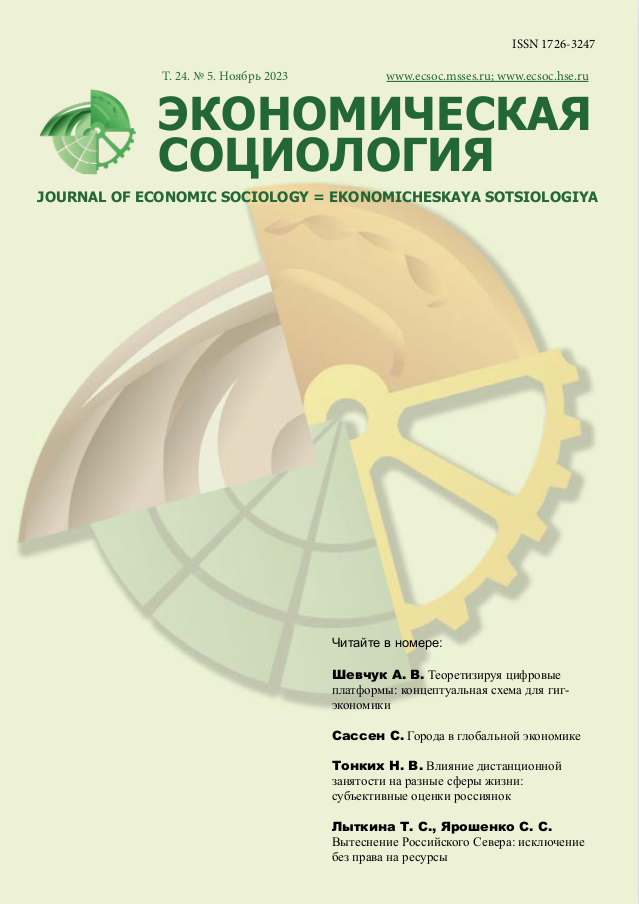Cities in a World Economy (excerpt)
Abstract
Economic globalization, accompanied by the emergence of a global culture, has profoundly changed the social, economic and political reality of national states, transnational regions and cities that make up the focus of Cities in a World Economy by Prof. S. Sassen. The presented book shows how some cities—New York, Tokyo, London, Sao Paulo, Hong Kong, Toronto, Miami and Sydney — have turned into transnational “spaces”. These cities began to have more in common with each other than with the regional centers of their national states, many of which have lost their significance. Moreover, the impact of global processes radically transforms the social structure of cities themselves—changing the organization of labor, income distribution, consumption structure, all that, in turn, creates new patterns of urban social inequality. Understanding how global processes are localized in national territories requires, according to Prof. Saskia Sassen, new concepts and research strategies. The Journal of Economic Sociology publishes the first chapter “Place and Production in the Global Economy”, in which the author raises questions about the content of the concept of globalization and the diversity of its types. The author reveals why she chooses the city as a place for empirical research on economic, political and cultural globalization.













